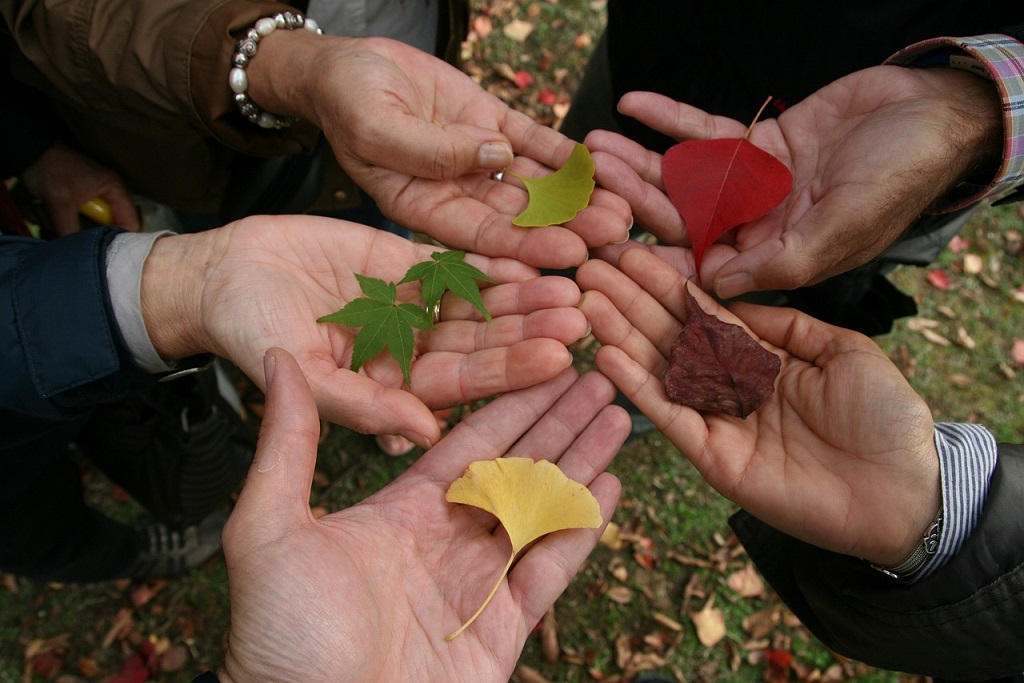This dynamic and compelling photograph (with poorly executed and derivative copies by others made more recently) by Alexander Rodchencko (1924) of the Jewish-Russian actress, writer and political radical, Lilya Brik (1891-1978) is enigmatic. Who or what is she calling for? Perhaps she is trying to arouse the deaf, who do not want to hear?

Nigel Pocock
This photograph may well be an unintended metaphor for Lilya’s life. Beautiful, talented, and doubisly linked to the ‘cheka’ (NKVD, secret police), Lilya’s life was as unsettled as it was creative―perhaps the two were necessary to the other? Her nickname was ‘love’, but not a ‘love’ that was perhaps in the best interests of all? Not of society, or even of herself?
Psychologists note that it is facing complexity, and addressing it―that skills in problem-solving are developed.
Retreat into simplicity and denial is not the answer, except perhaps in extreme circumstances, such as terminal illness. Even then, it might not be the solution defined by love: What is the best answer for all people?
Journalist Angela Saini comments in a recent interview (History Magazine, March 2023) that while the Russian Revolution wanted equality for all that it failed in respect of gender becoming authoritarian and brutal in the extreme. Why didn’t this ideal work? The Party simply couldn’t deliver.
Even in the 1980s, there were very few women in (for example) communist party leadership. Men were never required to work in the home. Saying there was gender equality outside the home, and not in it, was very poor social psychology. Where there is true equality (as Wilkinson and Pickett have shown in their classic work, The Spirit Level) all social dysfunctions tend to drop dramatically.
Lilya would have been aware of the aspirations of the Party and its ideology. But she would still have faced an uphill struggle. Rodchencko and Lilya were promoting books and reading, but how successful was this crucial tool?
 This is the dilemma for utopians in particular―those who are the worst perpetrators of extreme violence.
This is the dilemma for utopians in particular―those who are the worst perpetrators of extreme violence.
This is not ‘love’ (αγαπε, agapē) in the sense of looking out for the best both for society and individuals, but is instead a prioritising of one’s own élite group, the Communist Party, or any other party, with punishment (potentially extreme, even death and genocide) for non- compliance.
Is love for an ideology, truly ‘love’? Is shutting down discussion, uncriticisability, labelling people as ill (as Soviet psychiatrists did, and as people with alleged ‘phobias’ are today), ‘love’? In the sense of agape, clearly ‘love’ it is not, as we will see.
We need to have more love (agape) for people, and stop labelling them with Islamophobia, Christianophobia, homophobia ―and as many ‘phobias’ as the unchecked (sic) liberal imagination can contrive or conceive.
Except liberalophobia? What then is ‘love’: agape, eros, philia? How might each apply to the cry of Lilya Brik, to today’s western society, with its overweening narcissism? Trying to arouse the deaf, as she wanted to, as a utopian radical?
Did Lilya love (agape), or love (eros, usually taken to mean sexual desire, but possibly, consistent with unselfish love, to mean imparting value), or love, philia (love of community and relationship)?
Did Lilya understand what her youthful open marriage entailed, and change her views as she reached middle age? How did she understand unselfish ‘value’ and sexuality? Also unselfish community?
 Did the Manifesto ideal of abolishing marriage actually undermine equality, and increase exploitation? Only for marriage to be reinstated later by Stalin?
Did the Manifesto ideal of abolishing marriage actually undermine equality, and increase exploitation? Only for marriage to be reinstated later by Stalin?
What then? Are we in a similar situation today? Has the liberal turned autocrat, and is, by paradoxically undermining democracy with simplicity, in denial of criticism and review? With punishment for non-compliance?
As one research paper found, could it be that liberals and radicals, while affirming that they loved (and love) everybody, claiming that they want the best for themselves and society, that they also operate a strong ‘disbelief system’? This indeed, appeared to be precisely what was found.
For, while allegedly affirming this ‘love’ for all social groups, it indeed appeared that they believed that they loved everybody, provided they agreed with them about this supposed love.
If any group (strong Evangelical conservatives, for example) rejected this ‘love’, they were guilty of ‘intolerance’, and were outside the pale. They could not, paradoxically, be ‘tolerated’! Whatever the belief system stated, the disbelief system strongly countermanded it, if a group rejected the belief system.
Claiming love for all, what was actually there, was instead, fury and hatred! A contradiction indeed! Thus your rejection of my belief system will render you subject to my rules, to ensure social conformity! You have a ‘phobia’, and criticism cannot be allowed! Thus were the Cheka.
 A useful tool in ensuring this prosecuting of (alleged) phobias are the statistics which show the differences between actual demographics and public perceptions of them. In almost every case of a minority social commitment, this is exaggerated in the public mind by something around 30%. This is true across cultures (albeit similar), as comparisons of US and UK YouGov figures show.
A useful tool in ensuring this prosecuting of (alleged) phobias are the statistics which show the differences between actual demographics and public perceptions of them. In almost every case of a minority social commitment, this is exaggerated in the public mind by something around 30%. This is true across cultures (albeit similar), as comparisons of US and UK YouGov figures show.
Governments are no different from the public in their false responses: unless, of course, this is simply government playing for votes in terms of public responses, while all the time knowing of the huge mismatch between demographic reality and public responses. Regretably, it seems likely that politicians, while many (most?) likely indulge (as Edward de Bono put it) in ‘partialism’ regarding the selective use of statistics, in this case, they really do believe the fantasy.
Thus are both democracy and complexity denied, for a supposed simplicity and monoculture that is strangely medieval.
Yet this flies in the face of Darwin and evolutionary science, in which the trends from ‘deep time’ with simple organisms working towards ever increasing complexity are the accepted norm.
“Considering themselves wise, they have become fools”, as one writer of 2,000 years ago, wrote. This is the folly and contradiction of liberalism: claiming democracy, they are actually implementing autocracy and intolerance!
(Photos: Pixabay )












.jpg)












